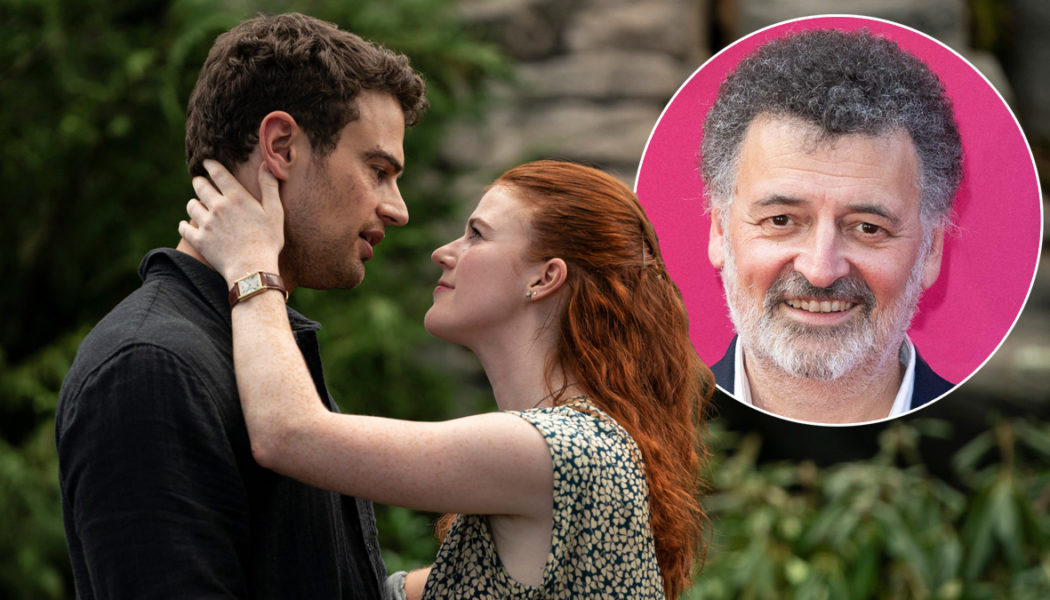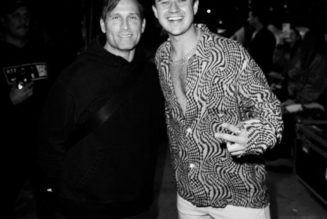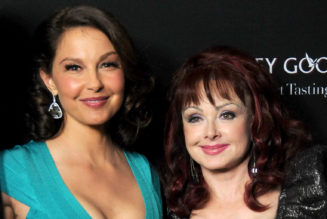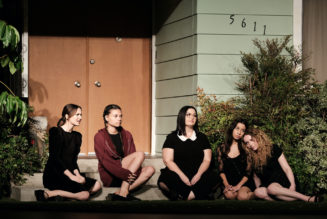
Steven Moffat’s had plenty of experience writing time travel stories, as the former head writer behind the iconic BBC sci-fi drama Doctor Who. But he’s very clear on the differences between that show and The Time Traveler’s Wife, his new adaptation of the best-selling Audrey Niffenegger novel about a man who gets constantly unstuck from time, and the woman who’s loved him her entire life, despite the complications of his condition.
“Henry and Clare’s life is not an adventure story. That’s the big difference. It’s a story of people trying to have a marriage, trying to be in love, trying to get home at night, trying to grasp every day of happiness they can have while facing the irritant of time travel,” he tells Consequence. “The Doctor loves his time travel. He or she wants to run back to her TARDIS as often as possible. But Henry, he’d just rather just go home to his wife. That’s what he wants to do.”
That said, the two series have more than one or two connections, as Moffat was so inspired by Niffengger’s original novel that he wrote an award-winning episode of Doctor Who, 2006’s “The Girl in the Fireplace.” Niffenegger went on to include a reference to “The Girl in the Fireplace” in her second novel, which Moffat calls “a deliberate piss-take on me, from Audrey. Because she’d seen ‘The Girl in the Fireplace’ and thought, oh yeah, he’s read The Time Travelers’ Wife. That’s that’s how we got in touch.”
The six episodes of the first season tease out a great deal of information about the lives of Henry (Theo James) and Clare (Rose Leslie), thanks to the magic of time travel, but also leave some secrets hidden. In the interview below, transcribed and edited for clarity, Moffat explains how he approached adapting the novel and why he chooses to reveal as much as he does.
[Editor’s note: The following contains spoilers for The Time Traveler’s Wife, Season 1, Episode 1.]
This is a book you’ve known well for some time — but what was the process like when you were first sitting down and really tackling the question of, “How do I adapt this?”
Well, I really wanted it to be a TV show. What I mean by that is I didn’t just want to serialize a book — you want to take the book and say, let’s tell that same story, but treat it in a way as if it were a TV format, with regular characters and individual episodes and so on. So I didn’t just want to serialize the book — I never quite loved that. I wanted it to feel like something that was belonged in television. Because I thought the idea and the characters were strong enough to do that.
But it makes it tricky at times, because a novel has one beginning, one middle and one end. A TV show has to have a beginning, middle and end once a week. So it’s a very different structure. But I wanted it to be simultaneously feel really faithful to the book, but also at times be able to wander in and out of it. So, at moments you’d feel this is, oh, that’s just that bit of the book. And sometimes you think this is a bit like the new adventures of Henry and Clare, you know.I wanted that because a little bit of unpredictability is quite nice, you know?
[flexi-common-toolbar] [flexi-form class=”flexi_form_style” title=”Submit to Flexi” name=”my_form” ajax=”true”][flexi-form-tag type=”post_title” class=”fl-input” title=”Title” value=”” required=”true”][flexi-form-tag type=”category” title=”Select category”][flexi-form-tag type=”tag” title=”Insert tag”][flexi-form-tag type=”article” class=”fl-textarea” title=”Description” ][flexi-form-tag type=”file” title=”Select file” required=”true”][flexi-form-tag type=”submit” name=”submit” value=”Submit Now”] [/flexi-form]










Tagged: Alternative Music, Doctor Who, FEATURES, INTERVIEWS, music blog, Steven Moffat, TV